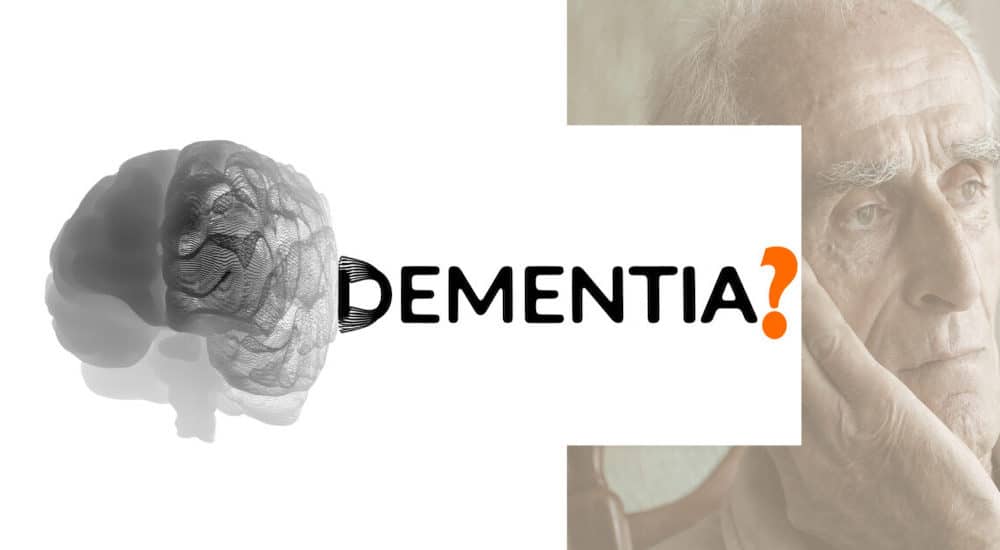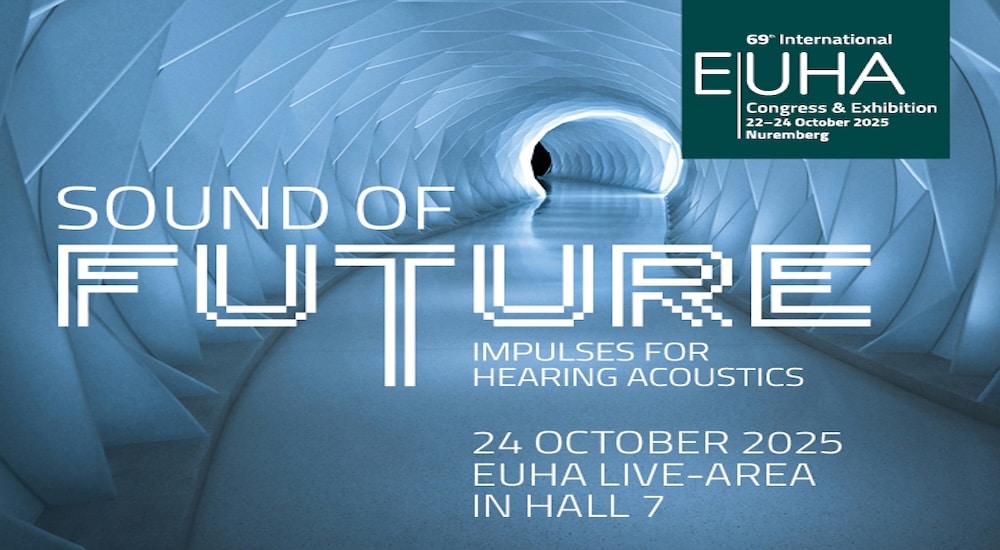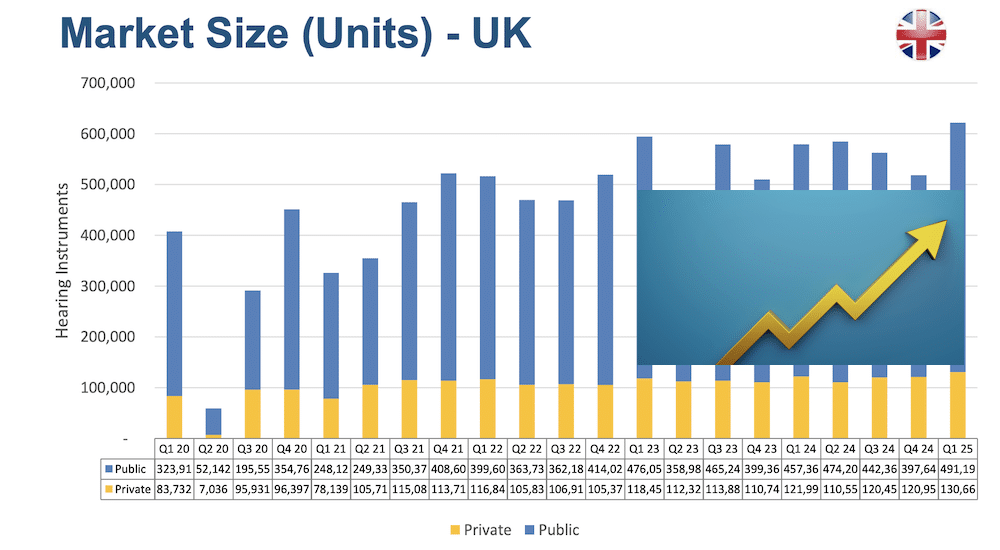Hearing loss may cause dementia; IT MAY NOT!
Leading hearing researcher Kevin Munro follows up his recent interview on these pages, reiterating concerns that - without good quality evidence to support them - messages linking hearing loss to dementia can do professionals, the industry, research, and the patient more harm than good.

Dementia is associated with a number of health conditions. The strongest links with dementia are with depression, traumatic brain injury, and diabetes.
Although not as strong, it is correct that there is a well-established link between adult-onset hearing loss and dementia. This means that people with adult-onset hearing loss have a small, increased chance of dementia. For example, if 10 in 1000 adults without hearing loss are at risk of dementia, current estimates suggest that that will increase by four (to 14 in 1000) for people with hearing loss.
In epidemiology studies, the term used for this link is risk i.e., hearing loss is a risk factor for dementia. However, it is of critical importance to understand that, in this context, risk does not mean cause.
By way of an analogy, there is a link between sales of ice cream and sunglasses, but we realise that ice cream sales per se do not cause people to rush out and buy sunglasses, right? It is the same for the link between hearing loss and dementia. This is not to deny the possibility that adult-onset hearing loss may cause dementia. It may or it may not.
My first take-home message is: there is currently a lack of good quality evidence to settle this question.

This lack of evidence is why we must avoid misleading and often negative messages, which may inadvertently promote a sense of alarm and stigma. I have witnessed this within my own family and circle of friends.
The messaging is not just of academic interest; they are real and they are causing harm. Unless adult-onset hearing loss can be shown to actually cause dementia, why would we expect hearing aids to reduce the chances of dementia?
A number of studies have reported that adults who wear hearing aids might be at a lower risk of cognitive decline, but every single one of these studies has limitations. These studies mostly compare a group of adults who decided to wear hearing aids and a group of adults who do not have hearing aids.
And these types of studies can be biased for all sorts of reasons. For example, adults who wear hearing aids tend to be better educated, on average, than adults who do not have hearing aids. Since we know the link with dementia is higher in people with lower levels of education, maybe it is the difference in education levels between the two groups that explains the apparent difference in cognitive decline.
There has been one high-quality study that randomly allocated people with adult-onset hearing loss to receive a comprehensive hearing intervention package including hearing aids or no specific hearing intervention (Lin et al, 2023). The main finding was that the rate of cognitive decline was the same in the hearing aid and non-hearing aid group.
My second take-home message is: there is currently no convincing evidence that hearing interventions reduce the risk of dementia in the general population.

The unhealthy focus on hearing loss as a potential cause of dementia by some professionals, industry and charities has several unintended consequences:
First, it undermines the importance of healthy hearing in its own right. We know that adult-onset hearing loss reduces the ability to communicate with ease, probably resulting in your brain needing to work harder to understand what is being said, and can limit social interactions (leading to frustration, fatigue, isolation, feelings of loneliness, anxiety and depression). The good news is that hearing aids (and other hearing support) can make spoken communication easier, and this improves your quality of life by keeping you socially engaged.
This positive, evidenced-based message is undermined by the completely unproven premise that hearing loss causes dementia and hearing aids will reduce the risk. The people who do this probably do so with good intentions in the belief that it gets hearing loss on the radar of policymakers, but for how long and at what cost? Don’t you think policymakers will completely lose interest in hearing if/when the argument is shown to be flawed?

BAA
Professor Kevin Munro
With no supporting data, there is no problem, and no need to take action on hearing loss. This is a high risk to take. On the other hand, there is a great opportunity to emphasise the importance of healthy hearing for healthy ageing or, alternatively, how hearing better helps you to live better. I would love us all to focus on addressing this social responsibility in a positive way instead of negative messaging and marketing.
Second, it distracts from the very high number of people who live with both hearing loss and dementia. Much more research is needed to address their needs and provide appropriate assessment and support.
The concerns above led us to publish our point-of-view article in the academic journal, Ear & Hearing earlier this year (Dawes and Munro, 2024), which is available to download free-of-charge. Also, we have published a commentary, specific to hearing loss, on the Lancet standing commission on dementia prevention, intervention, and care that was updated by Livingston et al (2024) this year ( [Commentary] Munro and Dawes, 2024). This is also available to access free-of-charge: https://www.entandaudiologynews.com/features/audiology-features/post/commentary-dementia-hearing-loss-and-the-danger-of-professional-rabbit-holes
Finally, a joint position statement on the link between adult-onset hearing loss and dementia is being published by the British Society of Audiology (BSA), British Academy of Audiology (BAA), and British Society of Hearing Aid Audiologists (BSHAA). This position statement will provide a balanced view that is entirely based on current evidence. It will counter ill-informed, negative messaging and hold the feet of some professionals, industry, and charities, to the fire.
References
Dawes P, Munro KJ. (2024). Hearing Loss and Dementia: Where to From Here? Ear and Hearing, 529-536. doi: 10.1097/aud.0000000000001494
Lin FR et al (2023). Hearing intervention versus health education control to reduce cognitive decline in older adults with hearing loss in the USA (ACHIEVE): a multicentre, randomised controlled trial. The Lancet, 402, 786-797.
Livingston G et al (2024). Dementia prevention, intervention, and care: 2024 report of the Lancet standing Commission. The Lancet 404.10452, 572-628
Munro KJ, Dawes P. (2024) Commentary: dementia, hearing loss, and the danger of professional rabbit holes. ENT & Audiology News, 27 September.
Source: Audiology News UK issue 11 November-December 2024
Read interview with Prof. Kevin Munro in Audiology Worldnews.


